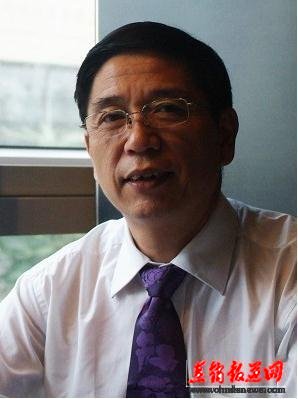2020-05-07 15:07
Yang Qian: constructing the discourse power of Globalization
|
[Beijing Direct News Network May 7th] (Yang Qian)In today's globalization, the issue of the right to speak is becoming more and more prominent. In particular, the global spread of the epidemic highlights the importance of the right to speak. It's one thing how you do it and say it. It's another thing how others listen and believe it. In a global village with complex situations, we should not only be able to do, but also to say, not only to say, but also to say convincingly, which is really not a simple thing. Therefore, the right to speak is a topic worthy of serious consideration. Francis Bacon (1561-1626), an English philosopher known by Marx as "the true ancestor of British materialism and the whole modern experimental science", has a famous saying: "knowledge is power". This power is usually an elegant power, that is, a knowledgeable person is looked up to. Compared with those who possess less knowledge, those who possess more knowledge will form an invisible discourse right. But is this law applicable between countries, nations, cultures and cultures? How does the discourse power in the world today come into being? Knowledge is very important, but what really works may be something called paradigms. In the era of knowledge generalization, perhaps Bacon's words can be changed to "paradigm is power". The word "paradigm" comes from Greek. Its original meaning refers to the etymology and root of linguistics, and later extended to the meaning of paradigm, norm, model, model and example. In academic circles, the paradigm usually refers to a series of universal rules, methods, concepts and theories which are regarded as standards by the academic circles. I understand that it is a kind of practice standardization and methodology of thinking logic. For example, in the current postgraduate training in Colleges and universities, almost no matter the subject, it is necessary to conduct research and Discussion on Problems and even form papers with this general basic rules and methods of connecting theory and experience. If we don't follow this format, it will be difficult to publish papers and research results. That is to say, if you don't speak according to the prescribed paradigm, no one will listen to what you may say. Of course, there is not only one paradigm, but if you want to enter a certain field, you need to be familiar with its paradigm. We have to admit that the Western paradigm still plays a leading role in today's world cultural exchanges. Behind the formation of this dominant position lies not only the gathering of human civilization all over the world, but also the strong shaping power of some early Western imperialism. Today's East and West are defined by the West. American Palestinian scholar Edward W. said has made a very careful analysis of this aspect in his book Orientalism. Although in his concept, the East refers to Palestine, Syria, Iraq and other near Middle East regions that are produced by several major religions, in fact, for far east regions such as China and India, it is the East for the west, and the essence is the same. "Under the umbrella of European hegemony over the East, which began to form in the late 18th century, a complex East was presented: it was studied in colleges, exhibited in museums, rebuilt by colonial authorities, theoretically expressed in topics related to anthropology, biology, linguistics, race and history of human beings and the universe, and used for development," said Saeed Examples of economic and social theories related to exhibition, evolution, cultural personality, national or religious characteristics, etc. " (Orientalism by Edward W. said, Trilogy bookstore, September 2019, p10-p11) In Marx's words, "they cannot express themselves; they must be expressed by others." In the 18th century, the East and China were at a time when they could not express themselves. In the promotion of trade and colonial war, the vast areas in the east of Europe were expressed by the West in their paradigm, which, after several centuries of improvement and refinement, has formed numerous academic authority. Today, no matter which field, even if there are new materials and views, it is only a supplement and improvement to this system. We see a large number of academic works about the East, no matter which field, are based on the narrative logic that has been constructed in the West. According to the principle, the flow of knowledge is two-way, but in the real world, the spread of knowledge is more similar to the flow of water. Generally speaking, people walk high and water flows low. Water, like knowledge, generally flows to the lowlands. Of course, this height is not the altitude, but the strength of knowledge. From the perspective of historical development, the height of knowledge may be related to two factors: on the one hand, it may be related to scientific development and economic development, and on the other hand, it may be related to religion. There should be no objection to this first point, and this second point may be controversial. |


